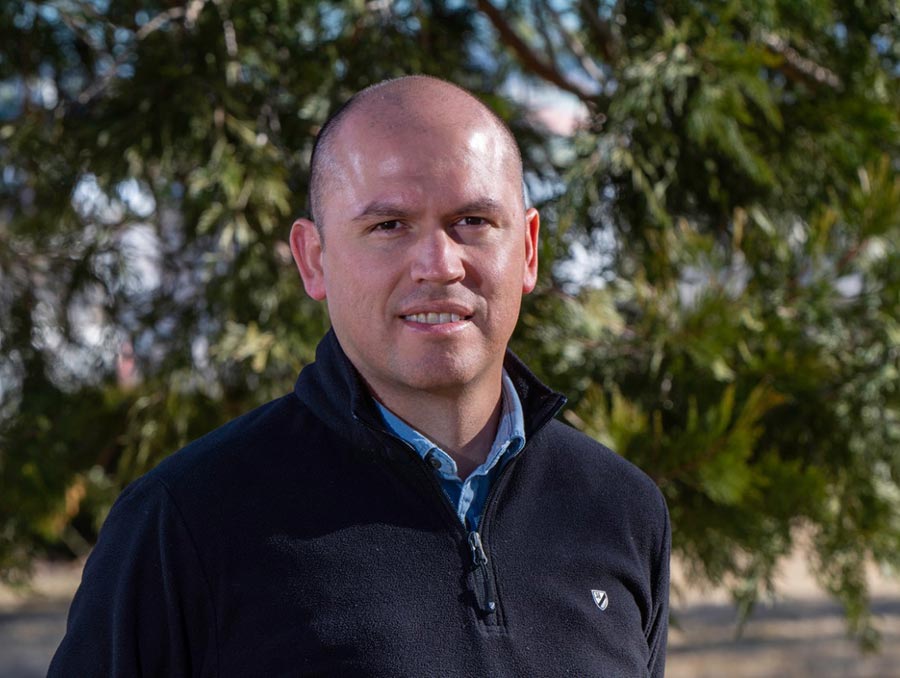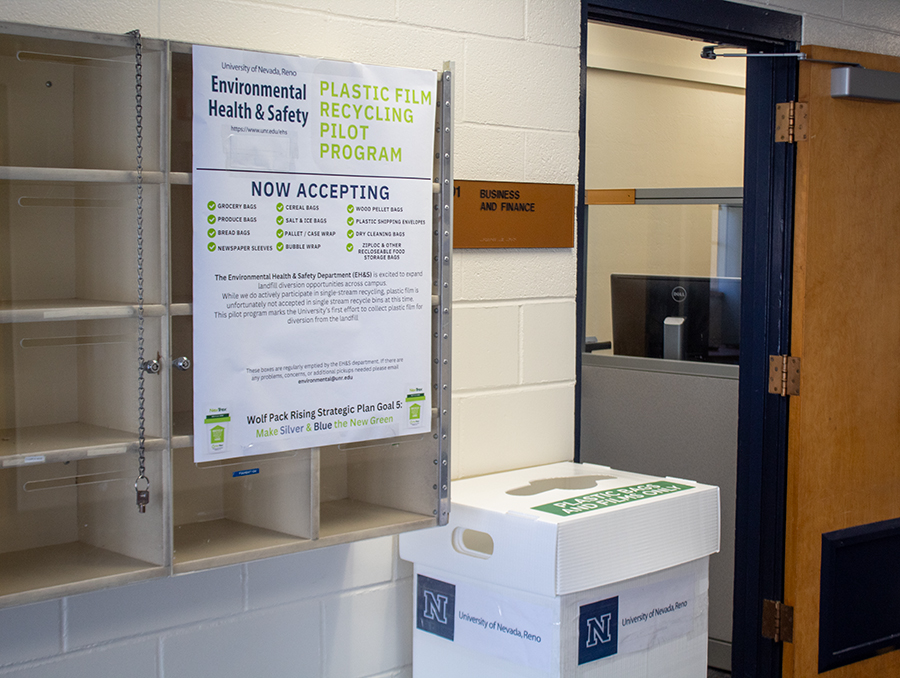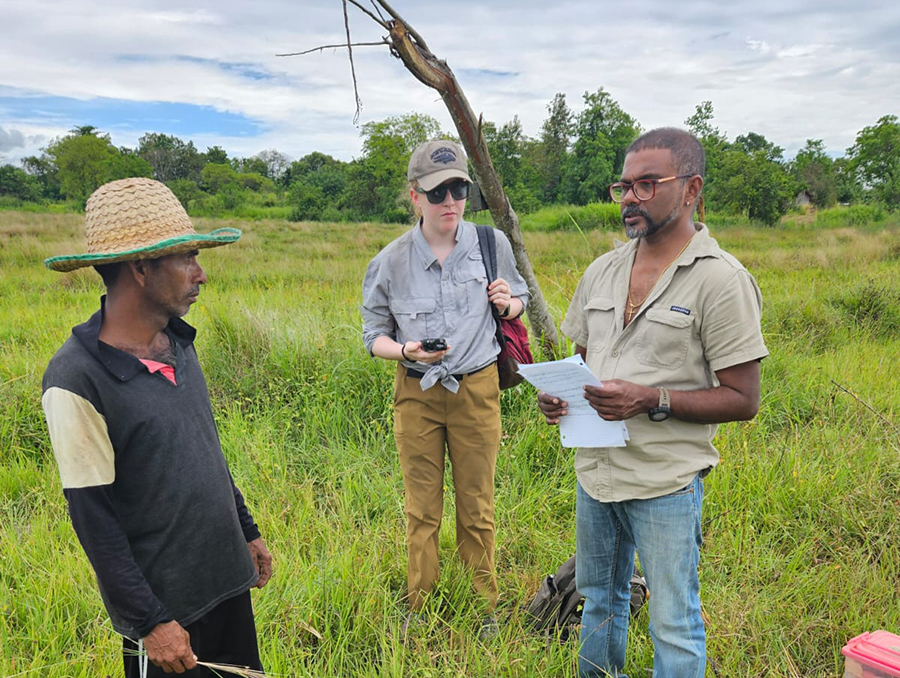University of Nevada, Reno’s College of Agriculture, Biotechnology & Natural Resources welcomes new Assistant Professor Manuel Alejandro Andrade-Rodriguez to the Department of Agriculture, Veterinary & Rangeland Sciences and the Environmental Sciences Interdisciplinary Graduate Program.
Andrade-Rodriguez is investigating how to improve irrigation management in Nevada’s arid and semi-arid climates. With the state’s harsh weather and low precipitation, conservation and proper use of water is essential for successful crops. As part of the College’s Experiment Station, he is working to develop methods to help farmers know when to water their crops and how much water they need. Andrade-Rodriguez is also focusing on using different types of sensing systems, such as weather-, soil- and plant-sensing systems, and artificial intelligence to develop technologies that will help farmers know the most efficient way to irrigate crops.
He completed his post-doctoral studies at the U.S. Department of Agriculture - Agricultural Research Service’s Conservation and Production Research Lab in Bushland, Texas, where he conducted research in water and irrigation management in agricultural systems of semi-arid areas. He also gained valuable experience in new technologies being developed for irrigation management, including precision irrigation and the development of user-friendly Decision Support Systems to improve the irrigation management of crops using center pivot irrigation systems.
Because of the similarities between Texas’ high plains and northern Nevada’s climate and challenges, Andrade-Rodriguez was able to apply his post-doctoral research to irrigation management in Nevada. The project in which he was involved during his post-doctoral research won multiple awards this year, including the Excellence in Technology Transfer Award and the Technology Focus Award, both from the U.S. Federal Laboratory Consortium, and the Vanguard Award from the Irrigation Association.
“Working at the University so far has been great, and my colleagues have been supportive of my research,” Andrade-Rodriguez said. “We’ve been able to collaborate on different projects, and I’m excited to get back to my office and to the field.”
Currently, he is collaborating with Assistant Professor Melinda Yerka and Associate Professor Robert Washington-Allen to test the effects that different nitrogen fertilization levels and irrigation deficit levels have on sorghum varieties using various remote-sensing technologies. They hope to identify how sorghum, a natural drought-tolerant crop growing in Nevada, responds to different nitrogen and irrigation treatments.















